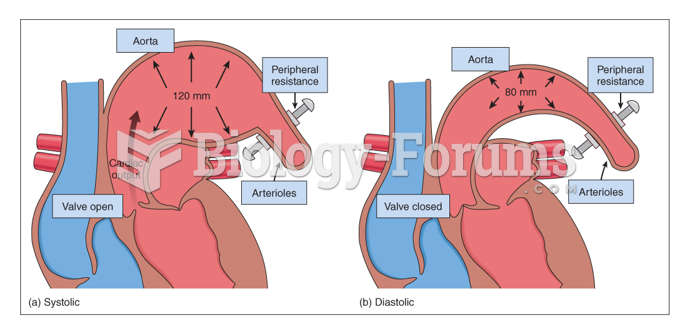|
|
|
Hippocrates noted that blood separates into four differently colored liquids when removed from the body and examined: a pure red liquid mixed with white liquid material with a yellow-colored froth at the top and a black substance that settles underneath; he named these the four humors (for blood, phlegm, yellow bile, and black bile).
Autoimmune diseases occur when the immune system destroys its own healthy tissues. When this occurs, white blood cells cannot distinguish between pathogens and normal cells.
The ratio of hydrogen atoms to oxygen in water (H2O) is 2:1.
Asthma cases in Americans are about 75% higher today than they were in 1980.
Aspirin is the most widely used drug in the world. It has even been recognized as such by the Guinness Book of World Records.







